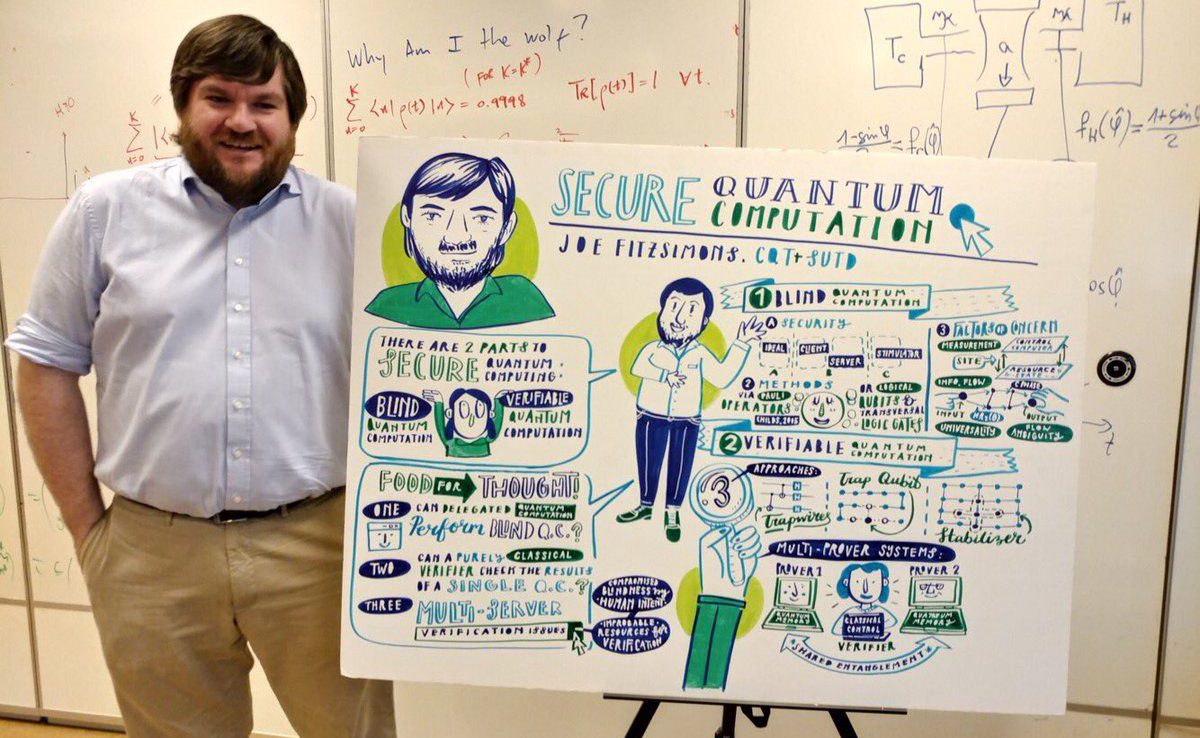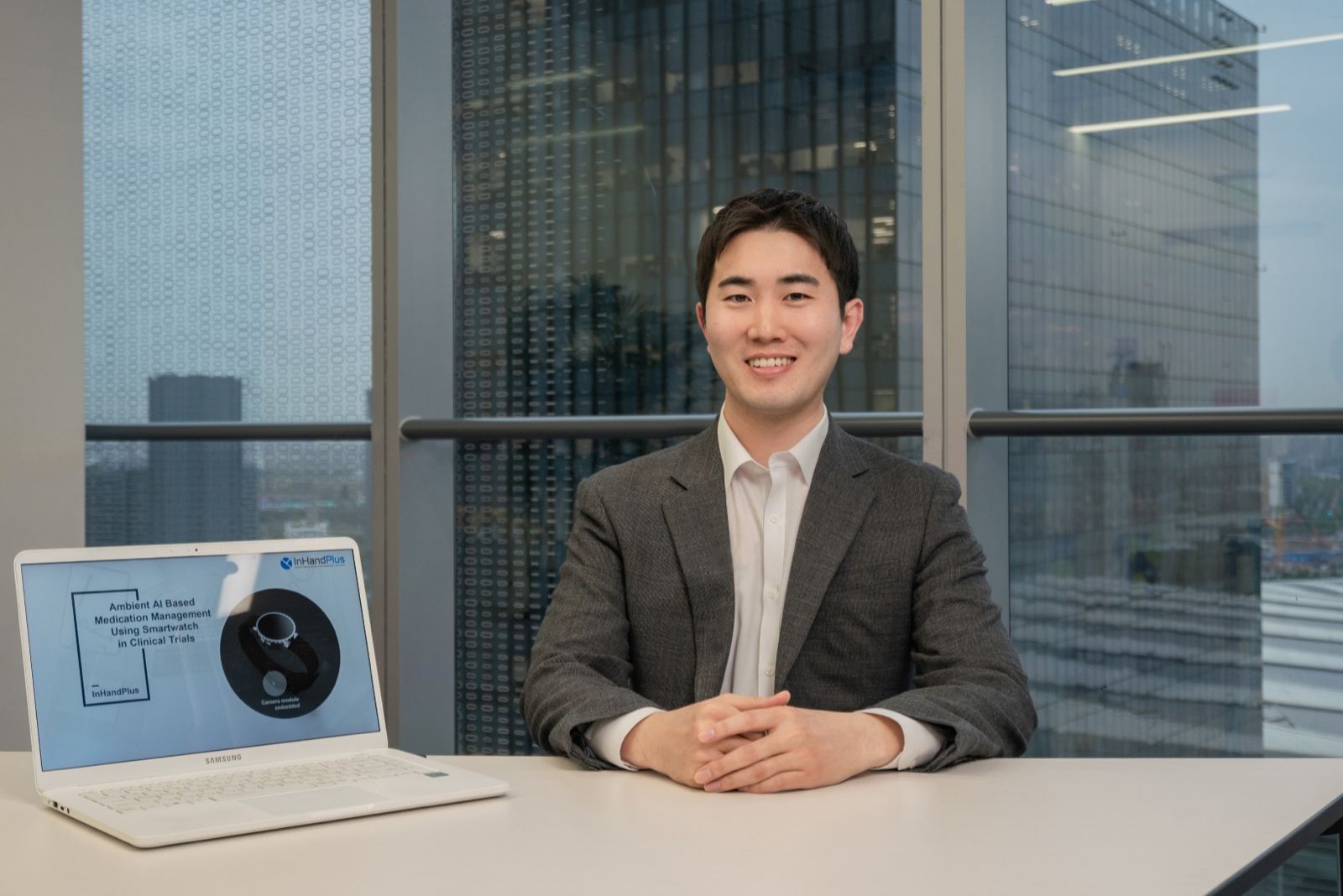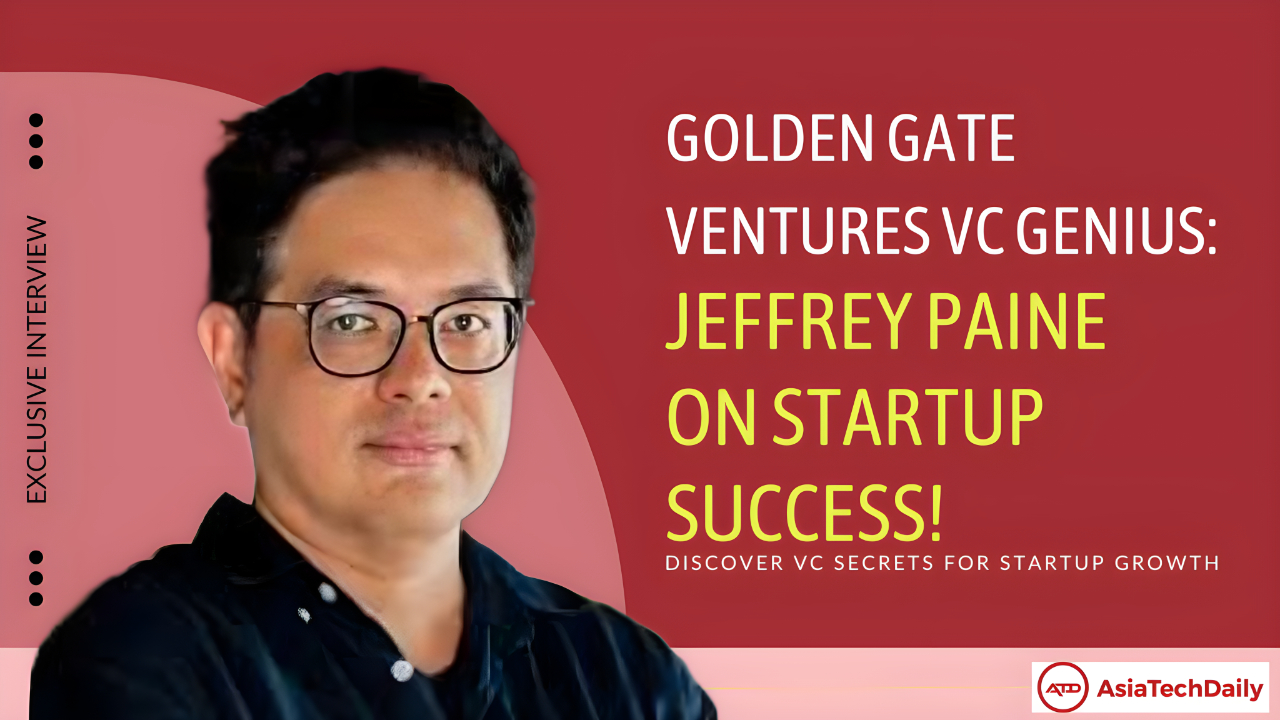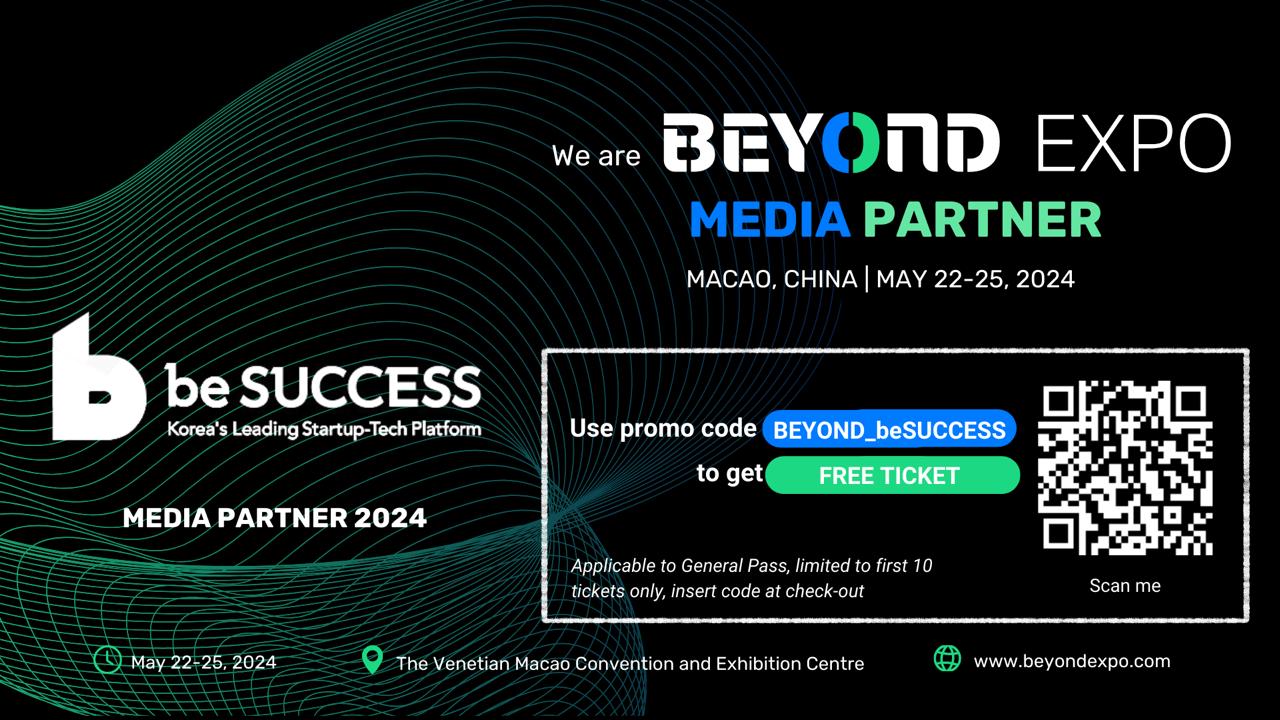AsiaTechDaily – Asia's Leading Tech and Startup Media Platform

How Joe Fitzsimons CEO Of Horizon Quantum Computing Raised $3.2M To Build Software-Development Tools To Enable The Next Revolution In Computing?
Driven by the vision of quantum computing as a revolution in computing technology, Joe Fitzsimons quit his tenured faculty position to found Horizon Quantum Computing in 2018. Drawing on over 15 years’ experience in quantum computing and computational complexity theory, today he fully dedicates his time to Horizon with the goal of making quantum computing a general-purpose computing technology capable of addressing some of the world’s most challenging computational problems.
Joe Fitzsimons received a BSc in Theoretical Physics from University College Dublin and a DPhil from Oxford, where he went on to become a fellow of Merton College. Prior to founding Horizon, he led the Quantum Information and Theory group at Singapore University of Technology and Design, where he was a tenured associate professor and was a principal investigator at the Centre for Quantum Technologies. He has published at the highest levels in both theoretical computer science (FOCS, STOC, CCC, ITCS) and physics (Science, Nature Physics, Physical Review Letters, Physical Review X), and has been named as a National Research Foundation Fellow and to the MIT Technology Review Innovators Under 35 Asia list.
In an exclusive interview with AsiaTechDaily, Joe says:
I would want my friends and family to remember me as a person rather than for any achievement. Still, I would want to be remembered by those who don’t know me personally for having meaningfully pushed technology forward. I want to help get us to what’s next, or maybe the thing after that.
One lesson that would serve them well in life is to know that imposter syndrome and self-doubt are common among highly accomplished people. World-leading scientists, for example, will frequently admit to suffering from them. I think that not knowing this leads to people leaving the field before having the chance to live up to their potential.
On the other hand, false confidence can be a dangerous trait. It is important to learn to dispassionately assess your work, competence, or knowledge of a particular topic and calibrate your level of confidence appropriately when making decisions or putting forward an argument.
Read on to know more about Joe Fitzsimons and his journey.

Please tell me about your personal background and what motivated you to get started with your company?
Joe Fitzsimons: I am a physicist by background. Before starting Horizon, I was a professor at Singapore University of Technology and Design and a Principal Investigator at the Centre for Quantum Technologies here in Singapore. I have been working on quantum computing for about 16 years at this point, so I am deeply committed to seeing the technology realized. I founded Horizon in 2018 because it seemed to me that the center of gravity for quantum computing was moving from academia to industry, and I felt that I could have a bigger impact on the technological development of the field through a startup than in academia. I ended up giving up tenure to focus on Horizon and have been in the company full time as CEO since March 2019.
What is your current main product, and can you share any previous product pivot story to the current product?
Joe Fitzsimons: Quantum computing is a potentially disruptive technology for many industries. On the hardware side, we have seen some important milestones crossed in the last two years. And yet, the pool of specialists capable of developing new quantum applications is estimated to be only a few hundred people. We aim to bridge the gap between quantum computers and conventional software development.
We like to say that our mission at Horizon is to democratize quantum computing. For us, that means making the development of software applications for quantum computers as easy as possible. We want to make quantum computing accessible to every computer programmer. With that in mind, we are developing tools to automatically accelerate programs written for conventional computers, adapting and accelerating them for quantum processors.
Instead of writing programs using gate-level quantum languages or relying on libraries of pre-programmed algorithms, you should be able to program a quantum computer in the same way you program computers today. That’s why we’re pioneering an approach to quantum programming that allows programs written in a single unified language to be compiled and run on either conventional or quantum computers, producing fast, efficient implementations no matter the platform.
Horizon Quantum Computing is developing tools to automatically accelerate programs written for conventional computers, such as Matlab or Octave programming, adapting them for quantum processors.
We are developing a complete compiler stack that will span the entire chain from algorithms construction down to physical level implementation. Source code is first parsed and then recast in a form that untangles and simplifies the code so that quantum speedups can be more easily detected. Elements of the program are then classified and replaced with more efficient quantum subroutines that accomplish the same task differently. Finally, these are translated into the basic building blocks of quantum algorithms and processed into a quantum program. This allows the programmer to gain a quantum speedup without understanding the underlying computational model and without restricting themselves to the limited functionality of pre-existing libraries. This allows greater flexibility and the opportunity to develop quantum algorithms for new domains without deep quantum expertise.
We began product development in early 2019, and since then, we have been able to demonstrate many key parts of the technology. We are still in development and will announce launch dates at a later stage. Nevertheless, we have already begun to work with early customers.
How much money have you raised in total so far? When was the recent funding round?
Joe Fitzsimons: We have raised SGD 4.5M ($3.23M) so far. SG Innovate led our seed round, and Sequoia Capital India led a subsequent seed-plus round. The last round has been announced in June 2020 but occurred earlier in the year.
What were the internal decision processes in determining when to begin fund-raising, and what were the logistics for this? And how many investors have you met so far, and how did you meet these investors, and which channels worked best for you?
Joe Fitzsimons: Determining when to fund-raise is a complicated decision which factors in our progress, our runway, our future capital needs based on strategy, and the state of the broader economy. We have been fortunate to have had a high level of inbound investor interest in recent months, and our existing investors are also helpful in connecting us with potential investors. We have not yet begun our Series A raise, but it is always useful to make connections ahead of time.
What are the biggest challenges and obstacles that you have faced in the process of fund-raising? If you had to start over, what would you do differently?
Joe Fitzsimons: When I started, the initial challenge was that I didn’t have many connections to potential investors. I think this is very common for founders who are not already part of the startup ecosystem. It takes a bit of time to build up these connections, which can be frustrating. However, over time things begin to snowball, and the problem disappears. At this point, if I had to start over, I wouldn’t have this problem as I would already have the connections.
What are your milestones for the next round? And what are your goals for the future?
Joe Fitzsimons: At present, our focus is on completing the development of our software tools and getting them into the hands of users.
How have you attracted users, and with what strategy have you grown your company from the start to now?
Joe Fitzsimons: Our tools are still in development, but we have recently begun to work with early customers. Quantum computing is a nascent technology, with a relatively small number of players so far. Our unique technology and our technical team’s reputation, who have been active researchers in this area for more than a decade on average, have led to a fair level of inbound interest.
Until now, quantum computing has often been seen as specifically applicable to particular industries: finance, logistics, chemistry, and pharma. This is due to existing algorithms having limited domains of applicability. At Horizon, our goal is to make quantum computing far more widely applicable. Our goal is to automate the quantum side of software development so that domain experts can develop applications without the need for quantum expertise. We believe this will open up a much broader range of use cases, including in areas such as computer-aided engineering and geophysics.
How do you plan to expand globally?
Joe Fitzsimons: The nature of quantum computing in general, and our technology, in particular, is that it’s easy to apply despite the borders. Even for quantum hardware, its geographical location becomes secondary thanks to the rapid expansion of cloud solutions. Our experience has been that our software’s interest isn’t geographically localized, and we find ourselves talking to potential customers across the globe. The acceleration of digital transformations of MNCs due to the pandemic will continue to make cross-frontier collaborations easier.
How do you handle this COVID-19 outbreak situation for your company’s survival in the future?
Joe Fitzsimons: At present, our focus is on completing the development of our software. This process can be carried out remotely, and so is relatively undisturbed by the pandemic. Ultimately, the tools we are building are intended to help users harness a powerful new form of computing, and the pandemic has only increased demand for computation. Quantum computing will ultimately make various possible kinds of complex engineering and scientific simulations that can reduce the need for on-site experiments or measurements in special facilities such as wind tunnels or chemistry laboratories. In a world where people are increasingly working from home, reducing such facilities’ need will be an important advantage.
What are the most common mistakes founders make when they start a company?
Joe Fitzsimons: I can’t speak to what mistakes are most common across companies. One mistake I have made with deep-tech startups is not having the technical founder or founders heavily involved in discussions with potential investors. My experience from talking to investors has been that they usually want to hear from the person driving the technology development.
What’s the best advice you’ve ever received? And What advice do you have for someone interested in doing similar things like yours or in a similar direction?
Joe Fitzsimons: The simplest advice I could give to someone looking to start a quantum computing company is to try to do something a bit different from other companies and keep an eye on how practical what you aim to do will be in the coming years. There are many gaps in the software and hardware layers yet to be filled, so find your niche.
What are the top-three books or movies (TV series) that changed your life and why?
Joe Fitzsimons: I can attribute many of my career choices to a single book. I read The Code Book by Simon Singh when I was 16. It sparked an interest in cryptography that has stayed with me throughout my career, and it was there that I first read about Shor’s algorithm and quantum computers. No other book, movie, or TV series has had that level of impact on me. At an entertainment level, though, I enjoyed Halt and Catch Fire for the way it makes me nostalgic for a time when computing was new and the sense of possibility that brought. I also enjoy the TV series Silicon Valley, probably a lot more than I should.
How do you keep yourself motivated every day?
Joe Fitzsimons: From my perspective, current developments in quantum computing strongly mirror the early years of the computing revolution. We’re at a very special point in time where the industry’s future is not yet clear, but tremendous advances are being made on a weekly or monthly basis. If the chance to contribute to that isn’t enough motivation to get up in the morning, then I don’t know what is.
What are the top- three life lessons that you want your (future) sons and daughters to know?
Joe Fitzsimons: One lesson that would serve them well in life is to know that imposter syndrome and self-doubt are common among highly accomplished people. World-leading scientists, for example, will frequently admit to suffering from them. I think that not knowing this leads to people leaving the field before having the chance to live up to their potential.
On the other hand, false confidence can be a dangerous trait. It is important to learn to dispassionately assess your work, competence, or knowledge of a particular topic and calibrate your level of confidence appropriately when making decisions or putting forward an argument.
What would you like to be remembered for?
Joe Fitzsimons: I would want my friends and family to remember me as a person rather than for any achievement. Still, I would want to be remembered by those who don’t know me personally for having meaningfully pushed technology forward. I want to help get us to what’s next, or maybe the thing after that.
You can follow Joe Fitzsimons here.
Are you looking to secure investment for your startup or a keen startup enthusiast, keep an eye on our interview section.
Follow Asia Tech Daily to know about the innovative startups and how they are revolutionizing the ecosystem.





